Food Manufacturing Grants in Atlantic Canada for 2026
Accelerate modernization, automation, and export growth with the right programs. Identify grants, incentives, and tax credits for every processing sector.
Across the Atlantic provinces, food and beverage manufacturers can access federal and provincial funding for capital projects, innovation, and market expansion. Programs span ACOA, the Sustainable Canadian Agricultural Partnership (SCAP), export development, energy efficiency, and workforce training. This directory clarifies eligibility, typical costs, and application steps for processors in seafood, meat, dairy, bakery, beverage, and emerging food tech.
27 opportunities available

Loans and Capital investmentsOpen
Regional Economic Growth through Innovation (REGI) — Business Scale-up and Productivity — ACOA
Atlantic Canada Opportunities Agency (ACOA)Financing to accelerate growth in Atlantic Canada
Eligible Funding
- No Condition
Eligible Industries
- Manufacturing
- Information and cultural industries
- Arts, entertainment and recreation
Types of eligible projects
CommercializationHuman ResourcesInnovation
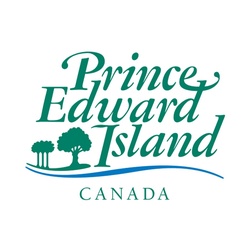
Loans and Capital investmentsOpen
Micro-Loan Program
Government of Prince Edward IslandMicro-loans for PEI entrepreneurs
Eligible Funding
- Maximum amount : 15,000 $
Eligible Industries
- Agriculture, forestry, fishing and hunting
- Manufacturing
- Retail trade
- Other services (except public administration)
Types of eligible projects
Business Buyout
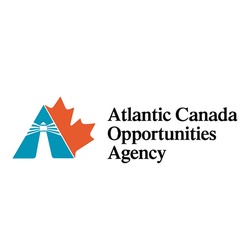
Grant and FundingOpen
ACOA Jobs and Growth Fund — For Profit
Atlantic Canada Opportunities Agency (ACOA)Money to future-proof your Atlantic Canada for-profit business
Eligible Funding
- Up to 50% of project cost
Eligible Industries
- Manufacturing
- Health care and social assistance
Types of eligible projects

Grant and FundingClosed
Invest Nova Scotia — Greenshoots
Government of Nova ScotiaFunding for early-stage businesses in Nova Scotia
Eligible Funding
- Maximum amount : 40 $
- Up to 90% of project cost
Eligible Industries
- Agriculture, forestry, fishing and hunting
- Manufacturing
Types of eligible projects
CommercializationTechnologyEnvironment and Climate

Grant and FundingOpen
Product and Market Development Program — Agricultural Industry Organizations
Government of Prince Edward IslandSupports agricultural organizations developing new products and markets
Eligible Funding
- Maximum amount : 30,000 $
- Up to 50% of project cost
Eligible Industries
- Agriculture, forestry, fishing and hunting
- Manufacturing
- Wholesale trade
Types of eligible projects
Commercialization

Grant and FundingClosed
Seafood Expansion and Market Access Program (SeaMArk)
Perennia Food and Agriculture CorporationSupports Nova Scotia seafood businesses in expanding market access
Eligible Funding
- Maximum amount : 99,900 $
- Up to 80% of project cost
Eligible Industries
- Agriculture, forestry, fishing and hunting
- Manufacturing
Types of eligible projects
CommercializationTechnologyHuman ResourcesInnovationDigital Transformation

Grant and FundingOpen
New Construction Commercial and Industrial Energy Efficiency Program
NB PowerSupports energy-efficient commercial and industrial new building projects
Eligible Funding
- Maximum amount : 250,000 $
- Up to 25% of project cost
Eligible Industries
- Agriculture, forestry, fishing and hunting
- Construction
- Manufacturing
- Wholesale trade
Types of eligible projects
Environment and Climate

Grant and FundingOpen
Centre for Women in Business
Centre for Women in BusinessTraining and events for Nova Scotia women entrepreneurs
Eligible Funding
- Maximum amount : 5,000 $
Eligible Industries
- Manufacturing
- Professional, scientific and technical services
- Other services (except public administration)
Types of eligible projects

Grant and FundingClosed
Nova Scotia Seafood and Agriculture Strategic Investment Fund
Perennia Food and Agriculture CorporationSupports transformative, innovative projects in Nova Scotia's seafood and agriculture
Eligible Funding
- From $500,000 to $1,125,000
- Up to 75% of project cost
Eligible Industries
- Agriculture, forestry, fishing and hunting
- Manufacturing
Types of eligible projects
CommercializationTechnologyInnovation
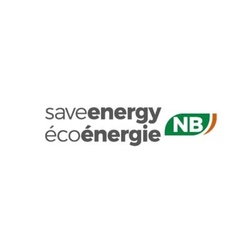
Grant and FundingExpert AdviceOpen
Industrial Energy Efficiency Program
Save Energy NBSupports industrial energy efficiency projects in New Brunswick
Eligible Funding
- Maximum amount : 1,000,000 $
Eligible Industries
- Utilities
- Manufacturing
Types of eligible projects
Environment and Climate

Grant and FundingClosed
Market Opportunities and Diversification Program
Government of Nova ScotiaFunding to help producers with local and export activities
Eligible Funding
- Maximum amount : 75,000 $
Eligible Industries
- Agriculture, forestry, fishing and hunting
- Manufacturing
Types of eligible projects

Grant and FundingOpen
Unpuzzling: Greening Your Food Manufacturing Operation (Atlantic Companies Only)
Canadian Food Innovation Network (CFIN)Sustainable food practices support for Atlantic Canada businesses
Eligible Funding
- Maximum amount : 25,000 $
- Up to 70% of project cost
Eligible Industries
- Manufacturing
Types of eligible projects
Environment and Climate

Grant and FundingExpert AdviceOpen
Local Supplier Food Safety Support Pilot Program
Perennia Food and Agriculture CorporationSupports Nova Scotia producers in achieving food safety standards
Eligible Funding
- Maximum amount : 20,000 $
- Up to 70% of project cost
Eligible Industries
- Agriculture, forestry, fishing and hunting
- Manufacturing
- Wholesale trade
- Retail trade
Types of eligible projects

Grant and FundingClosed
The Nova Scotia Beef Initiative
Perennia Food and Agriculture CorporationSupports capacity and improvements for Nova Scotia beef processors
Eligible Funding
- Maximum amount : 15,000 $
- Up to 60% of project cost
Eligible Industries
- Agriculture, forestry, fishing and hunting
- Manufacturing
Types of eligible projects
CommercializationEnvironment and ClimateHuman Resources

Expert AdviceOpen
Business Navigators - NS
Government of Nova ScotiaHelp understanding business regulations in Nova Scotia
Eligible Funding
- No Condition
Eligible Industries
- Agriculture, forestry, fishing and hunting
- Construction
- Manufacturing
- Retail trade
Types of eligible projects
CommercializationConstruction and Renovation Human Resources

Tax CreditsOpen
Direct Equity Tax Credit
Government of Newfoundland and LabradorTax credit for Newfoundland and Labrador investors
Eligible Funding
- Maximum amount : 3,000,000 $
- Up to 35% of project cost
Eligible Industries
- Agriculture, forestry, fishing and hunting
- Manufacturing
- Information and cultural industries
Types of eligible projects
Technology

Grant and FundingExpert AdviceClosed
Food Ventures Program
Perennia Food and Agriculture CorporationSupports Nova Scotia food businesses with quality and safety services
Eligible Funding
- Maximum amount : 10,000 $
- Up to 75% of project cost
Eligible Industries
- Agriculture, forestry, fishing and hunting
- Manufacturing
- Accommodation and food services
Types of eligible projects
CommercializationInnovation

Tax CreditsOpen
Nova Scotia Capital Investment Tax Credit
Government of Nova ScotiaRefundable corporate tax credit for qualifying Nova Scotia investments
Eligible Funding
- From $5,000,000 to $100,000,000
- Up to 25% of project cost
Eligible Industries
- Agriculture, forestry, fishing and hunting
- Manufacturing
Types of eligible projects
TechnologyInnovation
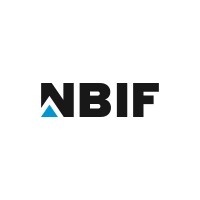
Researchers And FacilitiesGrant and FundingOpen
NBIF Innovation Voucher
New Brunswick Innovation Foundation (NBIF)Funding for R&D at a New Brunswick research institution
Eligible Funding
- From $10,000 to $80,000
- Up to 80% of project cost
Eligible Industries
- Agriculture, forestry, fishing and hunting
- Manufacturing
- Information and cultural industries
- Professional, scientific and technical services
Types of eligible projects
CommercializationTechnologyInnovation

Grant and FundingExpert AdviceOpen
Seafood Accelerator Program – Product Development and Technical Support
Perennia Food and Agriculture CorporationSupports Nova Scotia seafood companies in product development and safety
Eligible Funding
- Maximum amount : 15,000 $
- Up to 50% of project cost
Eligible Industries
- Agriculture, forestry, fishing and hunting
- Manufacturing
Types of eligible projects
CommercializationTechnologyInnovation

Grant and FundingExpert AdviceOpen
Seafood Accelerator Program – Quality and Food Safety
Perennia Food and Agriculture CorporationSupports Nova Scotia seafood companies in quality and food safety projects
Eligible Funding
- Maximum amount : 15,000 $
- Up to 50% of project cost
Eligible Industries
- Agriculture, forestry, fishing and hunting
- Manufacturing
Types of eligible projects
Innovation

Grant and FundingClosed
Small-Scale Food and Beverage Processing Equipment Program
Perennia Food and Agriculture CorporationSupports small-scale food and beverage equipment purchases in Nova Scotia
Eligible Funding
- Maximum amount : 10,000 $
- Up to 50% of project cost
Eligible Industries
- Agriculture, forestry, fishing and hunting
- Manufacturing
Types of eligible projects
Technology

Grant and FundingOpen
Business Rebate Program
NB PowerSupports business energy efficiency upgrades in New Brunswick
Eligible Funding
- Maximum amount : 250,000 $
- Up to 25% of project cost
Eligible Industries
- Agriculture, forestry, fishing and hunting
- Utilities
- Construction
- Manufacturing
Types of eligible projects
Environment and Climate
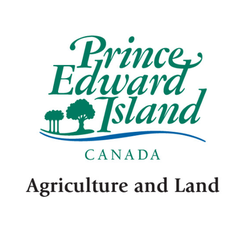
Grant and FundingOpen
Assurance Systems Program
Government of Prince Edward IslandFunds for risk management on Prince Edward Island farms
Eligible Funding
- No Condition
Eligible Industries
- Manufacturing
Types of eligible projects
Environment and ClimateHuman Resources
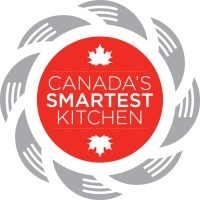
Eligible Funding
- No Condition
Eligible Industries
- Manufacturing
Types of eligible projects
CommercializationInnovation

Grant and FundingClosed
Strategic Industry Growth Initiative
Government of Prince Edward IslandFunding for Prince Edward Island to commercialize new food products
Eligible Funding
- Maximum amount : 20,000 $
- Up to 85% of project cost
Eligible Industries
- Agriculture, forestry, fishing and hunting
- Manufacturing
Types of eligible projects
Commercialization
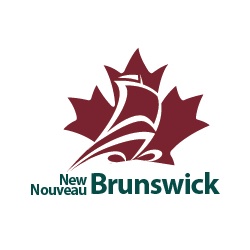
Grant and FundingOpen
Sustainable Canadian Agricultural Partnership in New Brunswick
Government of New BrunswickFunds for agri-food sustainability in New Brunswick
Eligible Funding
- Maximum amount : 100,000 $
- Up to 25% of project cost
Eligible Industries
- Agriculture, forestry, fishing and hunting
- Manufacturing
Types of eligible projects
TechnologyInnovation
Frequently asked questions about food manufacturing grants in the Atlantic provinces
Here are clear answers about grants, incentives, and programs for food and beverage processing in Atlantic Canada.
What are the main funding sources for food processors in Atlantic Canada?
Which projects are commonly eligible for food processing grants?
How much funding can manufacturers expect to receive?
Are seafood processors prioritized in Atlantic programs?
Can I combine ACOA with SCAP or provincial incentives?
What documentation strengthens a grant application?
Are workforce training and safety eligible?
Do grants cover energy efficiency and refrigeration retrofits?
What if my company is a startup or women‑led/Indigenous‑owned?
How long does approval take and when should I apply?
What else should I know about Grants and Funding for Food Processing in Atlantic Canada?
Explore related grant directories
By Funding Type
By Business Size
By Service
Artificial Intelligence Grants and Funding in Atlantic Provinces
Commercialization Grants and Funding in Nova Scotia for 2026
Commercialization Grants in Atlantic Canada
Commercialization Grants in New Brunswick, Canada for 2026
Digital Transformation Grants in New Brunswick
Digital Transformation Grants in Nova Scotia
By Industry
Culture Grants and Funding in New Brunswick
Culture Grants and Funding in Nova Scotia
Culture Grants and Funding in the Atlantic Provinces
Education Grants in New Brunswick
Education Grants in Nova Scotia
Education Grants in the Atlantic Provinces
Grants and Funding for Construction Companies in Atlantic Canada
Grants and Funding for Construction Companies in New Brunswick
Grants and Funding for Construction Companies in Nova Scotia
Grants and Funding for Financial Services in Atlantic Provinces
Grants and Funding for Financial Services in Nova Scotia
Grants and Funding for Green Manufacturing and Decarbonization in Atlantic Canada
Grants and Funding for the Mining Sector in Atlantic Provinces
Grants and Funding for the Mining Sector in Nova Scotia
Grants and Funding in Agriculture in Atlantic Provinces
Grants and Funding in Agriculture in New Brunswick
Grants and Funding in Agriculture in Nova Scotia
Grants for Green Manufacturing and Decarbonization in New Brunswick
Grants for Green Manufacturing and Decarbonization in Nova Scotia
Healthcare Grants and Funding in Atlantic Provinces
Healthcare Grants and Funding in New Brunswick
Healthcare Grants and Funding in Nova Scotia
Manufacturing Grants and Funding in Atlantic Provinces
Manufacturing Grants and Funding in New Brunswick
Manufacturing Grants and Funding in Nova Scotia
Transport and Warehousing Grants and Funding in New Brunswick
Transportation and Warehousing Grants and Funding in Atlantic Provinces
Transportation and Warehousing Grants and Funding in Nova Scotia
By Industry Subsectors
Food Processing Grants in New Brunswick
Food Processing Grants in Nova Scotia
Forestry Grants and Funding in Atlantic Canada
Forestry Grants in New Brunswick
Forestry Grants in Nova Scotia
Grants and Funding for Plastic Manufacturing in New Brunswick
Grants and Funding for Plastic Manufacturing in Nova Scotia
Grants and Funding for Plastic Manufacturing in the Atlantic Provinces
Grants and Funding for Textile Mills in New Brunswick
Metal Manufacturing Grants and Funding in Nova Scotia
Metal Manufacturing Grants in Atlantic Canada
Metal Manufacturing Grants in New Brunswick